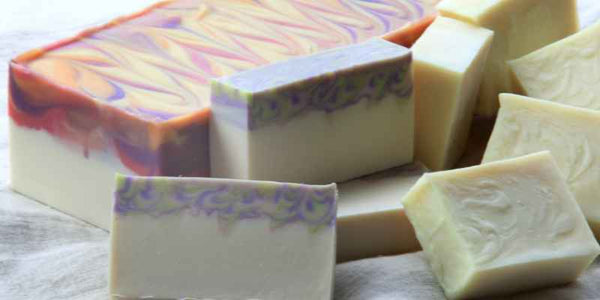
Skincare and cold-processed soap is something many people ask about. Is it good for cleaning the face? What happens if I break out in a rash? Those are some of the topics we'll discuss. Cold-processed soaps and bath bombs seem to be the rage right now but, really, is it as good for your skin as everybody says? I think it's no different than any other product you buy on the market. You have to know what's in it, and what type of scent they use. Most soap makers use essential oils for scent. Make sure you aren't allergic to the ingredients or the scent they use. If you break out in a rash, contact a doctor immediately. We are not doctors. Please, get advice from a professional medical team member if you have any concerns or reactions.
Is cold-processed soap safe to use on my face?
Cold process soap is good for the skin. It's typically made from natural ingredients and doesn't contain any artificial chemicals or additives. Although, it's important to read the labels. Some cold-processed soaps have F, D&C, and D&C dyes which are deemed cosmetically safe but still can cause a reaction. Our soap also contains natural essential oils for scent. Cold-processed soap can be more expensive than other types of soap due to the safer ingredients. The benefits absolutely outweigh the cost!

What is so special about cold processed soap?
With cold process soaps, the ingredients are not heated. This allows them to conserve their beneficial and natural properties. Which makes the soap better for your skin. This type of soap is also more gentle on the skin because of the oils used to process the soap. The skin retains its protective barrier which gives your skin extra hydration.
What's the difference between the hot and cold processes?
One difference between hot and cold-process soap is that hot-process soap can be used immediately after it hardens. It's a good idea to give the soap a week or so when doing the hot process, allowing the bar to harden up a bit. This also allows the water to evaporate which will make a harder, longer-lasting bar. Cold process soap can last 4-6 weeks if you follow a few simple rules about cold-processed soap. This is a reminder that humidity will affect your soap bars. Keep your soap dry.

Can homemade soaps go bad?
Yes, they can. Most homemade soaps do have an expiration date or start to deteriorate after one year. After that, the soap may become rancid, and there is a high risk of mold. It may take more or less time for the homemade soap to expire depending on the materials it is made of.
How can I tell if my soap is rancid?
When it comes to cold processed soap, a great indicator of rancid oils are the orange spots you'll see also known as DOS, aka Dreaded Orange Spots. It's best to throw it out. The ingredients in the soap may break down over time and create a reaction with your skin. This can cause irritation, dryness, and even rashes.
Final Thoughts:
The cold process soap is good for your face and good to have included in your skincare routine. Good skincare begins in the shower. Most bars include essential oils, if you're sensitive to certain plants, you may want to check with your doctor before using our soap. People with sensitive skin can use cold processed bars of soap, it's moisturizing and makes you feel smooth. You'll love using cold process and hot process soap for the benefits of natural ingredients.



